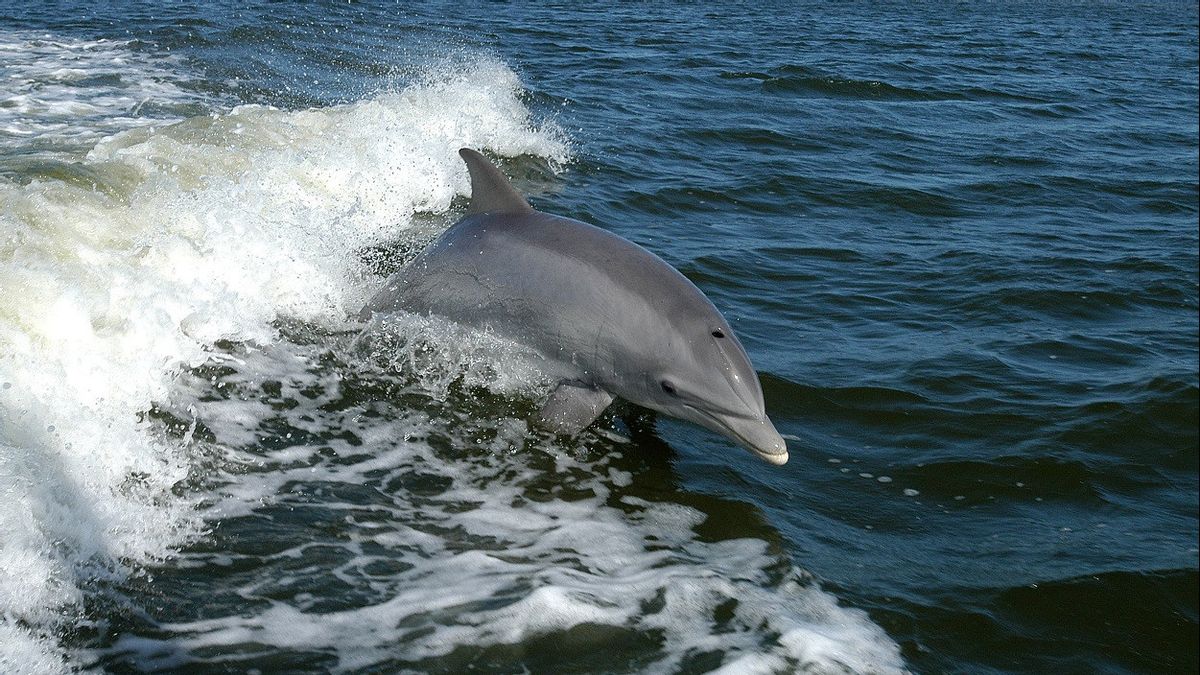JAKARTA - Wild dolphin attacks on parts of Japan's prefectural beaches have increased since 2022, with experts declaring the only Indo-Pacific bottlenose dolphin may be the cause, estimating the aggressive behavior could increase.
Eight people were injured this summer on the beaches of Fukui Prefecture as of Tuesday, including an elementary school student whose fingers require 20 to 30 stitches and it will take a month to recover, according to the Tsuruga Coast Guard Office, according to Kyodo News Aug. 25.
The number of incidents this year has increased rapidly compared to the last two years, with at least one injured in 2022 and five in 2023, according to the coast guard.
Last week, a man in his 50s suffered bite wounds on both hands from a dolphin while swimming off the coast of Mizushima Island, Tsuruga, marking the second day in a row an incident occurred on the beach.
On August 13, a man in his 40s suffered minor injuries after being bitten by his right thumb and left foot on Shiraki Beach, also in Tsuruga.
Cetology professor at Mie University, Tamamichi Morisaka said the characteristics of the dolphin's back fin seen on the same beach a few days before the incident matched the 2.5-meter-long dolphin's back fin seen off the coast of Fukui Prefecture until last year.
"The dolphins may come to the beach to seek interaction with humans," said Professor Morisaka.
While dolphins in aquariums are often seen bonding with humans, interactions that often with humans can cause them to try to show dominance through behaviors such as biting and crashing, Professor Morisaki said, adding that in such situations people should "immediately stay away from dolphins."
SEE ALSO:
Meanwhile, Director of Aquarium Echizen Matsushima in Sakai, Fukui Prefecture, Ryoichi Matsubara warned, as some dolphins could be bigger than bears, "contacting them could be very dangerous. It's too late in the event of a fatal accident."
Catching dolphins is generally prohibited under government regulations. Fukui Prefectural officials say they currently have no plans to do so in this case.
Several beaches have started installing ultrasonic-wave emitting devices as a deterrent, while swimmers are warned to leave the water immediately if they encounter dolphins.
The English, Chinese, Japanese, Arabic, and French versions are automatically generated by the AI. So there may still be inaccuracies in translating, please always see Indonesian as our main language. (system supported by DigitalSiber.id)


















